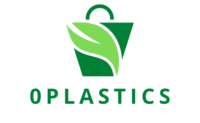In the collective pursuit of a greener and more sustainable world, plastic-free marketplaces are emerging as key players driving positive change on a global scale. This article explores the diverse ways in which these marketplaces contribute to environmental well-being, fostering a more sustainable future for the planet.
1. Reducing Plastic Pollution:
At the forefront of the environmental impact, plastic-free marketplaces play a pivotal role in reducing plastic pollution. By offering alternatives to single-use plastics and promoting reusable and compostable options, these marketplaces actively contribute to minimizing the environmental harm caused by plastic waste.
2. Encouraging Sustainable Consumption:
Plastic-free marketplaces champion sustainable consumption by curating products that prioritize eco-friendly materials and ethical production practices. By encouraging consumers to make mindful choices, these marketplaces foster a culture of responsible and sustainable consumption, promoting a shift towards greener lifestyles globally.
3. Fostering Innovation in Sustainable Solutions:
As hubs of innovation, plastic-free marketplaces are instrumental in fostering the development and adoption of sustainable alternatives. By showcasing cutting-edge products and supporting research and development initiatives, these marketplaces contribute to a global ecosystem of innovation aimed at reducing the reliance on traditional plastics.
4. Creating a Global Network of Sustainable Brands:
Plastic-free marketplaces serve as connectors in a global network of sustainable brands. By collaborating with eco-conscious businesses worldwide, these marketplaces amplify the impact of the sustainable movement. The collective influence of a diverse array of brands contributes to a more comprehensive and far-reaching transition towards a greener world.
5. Educating a Global Audience:
Through online platforms and educational initiatives, plastic-free marketplaces have a global reach in educating consumers about the environmental impact of plastic and the benefits of sustainable living. This widespread education fosters a global community of environmentally conscious individuals committed to making a positive impact.
6. Supporting Local and Global Economies:
Plastic-free marketplaces contribute to the well-being of both local and global economies. Locally, they support small businesses and artisans, creating economic opportunities and promoting sustainable livelihoods. Globally, the marketplaces contribute to the growth of the sustainable sector, stimulating economic activity aligned with environmental responsibility.
7. Influencing Supply Chains:
By demanding and promoting eco-friendly alternatives, plastic-free marketplaces have a ripple effect on supply chains. This influence encourages suppliers and manufacturers to adopt more sustainable practices, from sourcing materials to production methods. The shift in supply chain practices resonates globally, contributing to broader industry changes.
8. Addressing Environmental Injustice:
Plastic pollution disproportionately affects vulnerable communities worldwide. Plastic-free marketplaces, by prioritizing ethical and sustainable practices, contribute to addressing environmental injustice. These marketplaces strive for fair labor practices, reduced environmental impact, and accessibility to sustainable products, promoting equity in global environmental efforts.
9. Building International Collaboration:
In the interconnected world, plastic-free marketplaces facilitate international collaboration. By bringing together sustainable brands, consumers, and influencers across borders, these marketplaces foster a sense of shared responsibility. This collaborative approach strengthens the global movement towards a greener world, transcending geographical boundaries.
10. Shaping Global Policies:
The influence of plastic-free marketplaces extends to shaping global policies and regulations. As leaders in sustainable practices, these marketplaces advocate for environmentally friendly policies and contribute to the development of international standards. Their influence on policy discussions helps create a more supportive framework for sustainable initiatives worldwide.
In conclusion, plastic-free marketplaces serve as catalysts for positive change on a global scale. By reducing plastic pollution, encouraging sustainable consumption, fostering innovation, creating a global network of sustainable brands, educating a global audience, supporting local and global economies, influencing supply chains, addressing environmental injustice, building international collaboration, and shaping global policies, these marketplaces play a crucial role in the collective effort towards a greener and more sustainable world. Through their diverse contributions, plastic-free marketplaces inspire a global shift towards a future where environmental consciousness and sustainable choices are at the forefront of consumer behavior and industry practices.
